This post may contain affiliate links which means we may get a commission if you make a purchase at no additional cost to you. As an Amazon Associate we earn from qualifying purchases. Please read our disclosure for details.
"Each product we feature has been independently selected and reviewed by our editorial team. If you make a purchase using the links included, we may earn a commission."

Africa is probably one of the best destinations for hunting safari because of the abundance and diversity of wildlife. But that is not all! The lush landscape and vast plains of Africa make this continent an ideal destination for hunting safari and an adventurous getaway.
There is simply nothing as exciting as trying to outwit incredibly clever and cunning wild animals.
Now, if hunting in Africa has always been on your mind for a while, this article will provide invaluable information that will make the process of planning an African hunting safari seamless and straightforward.
Ready? Let’s dive in!
A Rudimentary Guide on Africa Hunting Safari Regions
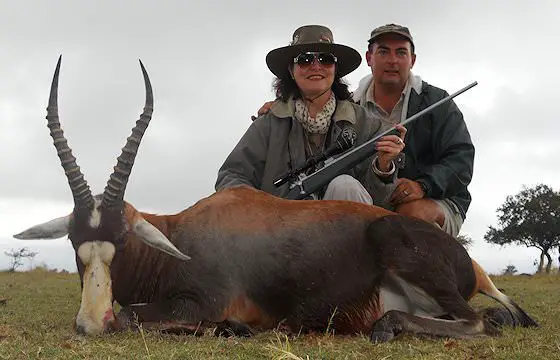
Safari hunting experiences vary greatly based on the region and it’s important to have at least a rudimentary picture of what to expect. Here is a quick safari hunting guide:
Southern African countries such as Namibia, Zimbabwe, and South Africa are the most popular countries among hunters (source).
Not only do these countries provide hunters with outstanding experiences, but they’re also affordable and ideal for first-timers.
Eastern Africa – especially Ethiopia, Mozambique, and Tanzania, on the other hand, boast vast wilderness areas. These places are packed with wild-game animals like buffalos, lions, elephants, and leopards.
These regions are fantastic if you desire a comfortable safari spiced up with a thrilling hunting adventure.
Central and Western African countries are the most appealing to experienced hunters, who are after challenging games – giant eland and bongo.
With such a wide range of terrain, diverse destinations and different species of animals to choose from, hunting safari in Africa offers something for everyone.
Packing List for Hunting Safari
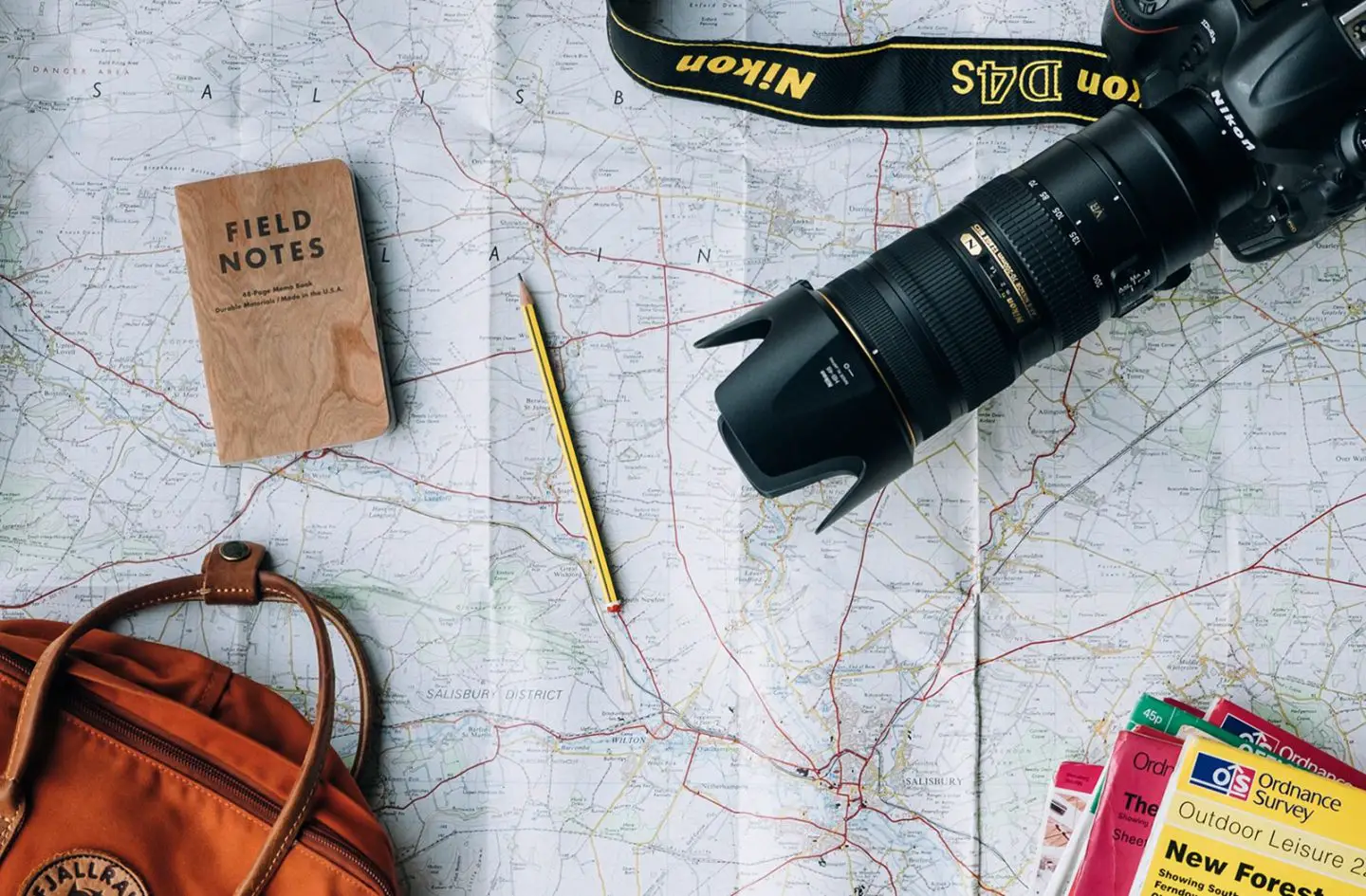
Note that clothing may vary depending on the length of your stay, the location, and your preference.
The general rule of thumb is to make sure you pack suitable colors (like neutrals) for your hunting days. Most of the time khaki or jungle green is recommended.
Items to consider packing are:
- 4 shirts
- 2 long trousers
- 2 walking shorts
- 1 lightweight hunting jacket
- 1 wool sweater
- Wide brim field hat
- Medium weight socks
- 1 pair of sturdy boots
- One pair of camp slippers
- Gloves
- Sunglasses
- Sunblock cream
- Power adapter
- Camera
African Hunting Safari Packages
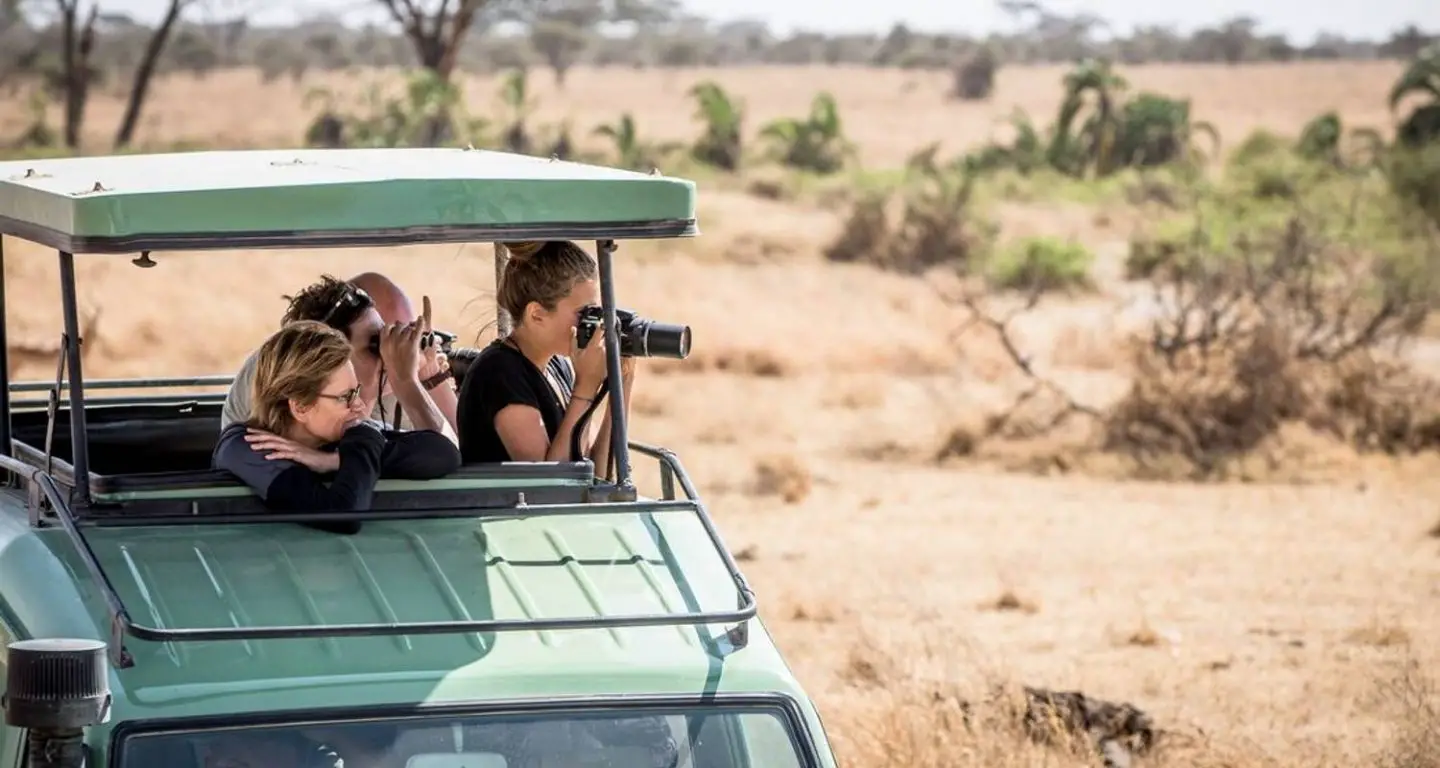
African hunting safari is certainly not a cheap hobby. The price varies depending on the country and the exact animal species you intend to hunt.
Generally, non-exotic species such as gazelle, impala, kudu, wildebeest, eland warthog, zebra, and so on of plain games are the most considerately priced.
Most packages of African hunting safaris are primarily based on two things;
- Daily rates – this covers lodging, meals, transportation, service of a professional and qualified hunter
- Trophy rates – this is the price you’ll need to pay for any animal killed on the hunt
That said, a 5-day or more African safari hunting expenditure can cost upwards of $3000 to $10,000 depending on the outfitter, type of safari hunt, and the country of the hunt.
This is no different for African hunting safaris.
Factors that Influence Costs
There are a few factors that are taken into consideration in determining the cost of any African safari. Some factors include:
- Country plus the specific hunting areas
- Length of the hunting period (days)
- Availability of trophy animals
- Quality of the trophy
- The method used in hunting
- Travel and accommodation arrangements
Whether you’re new or a seasoned hunter, you need to dig a little deeper to get a close estimate of how much your adventure will cost.
This will spare you from unpleasant surprises of hidden fees as these quickly add up to a significant amount.
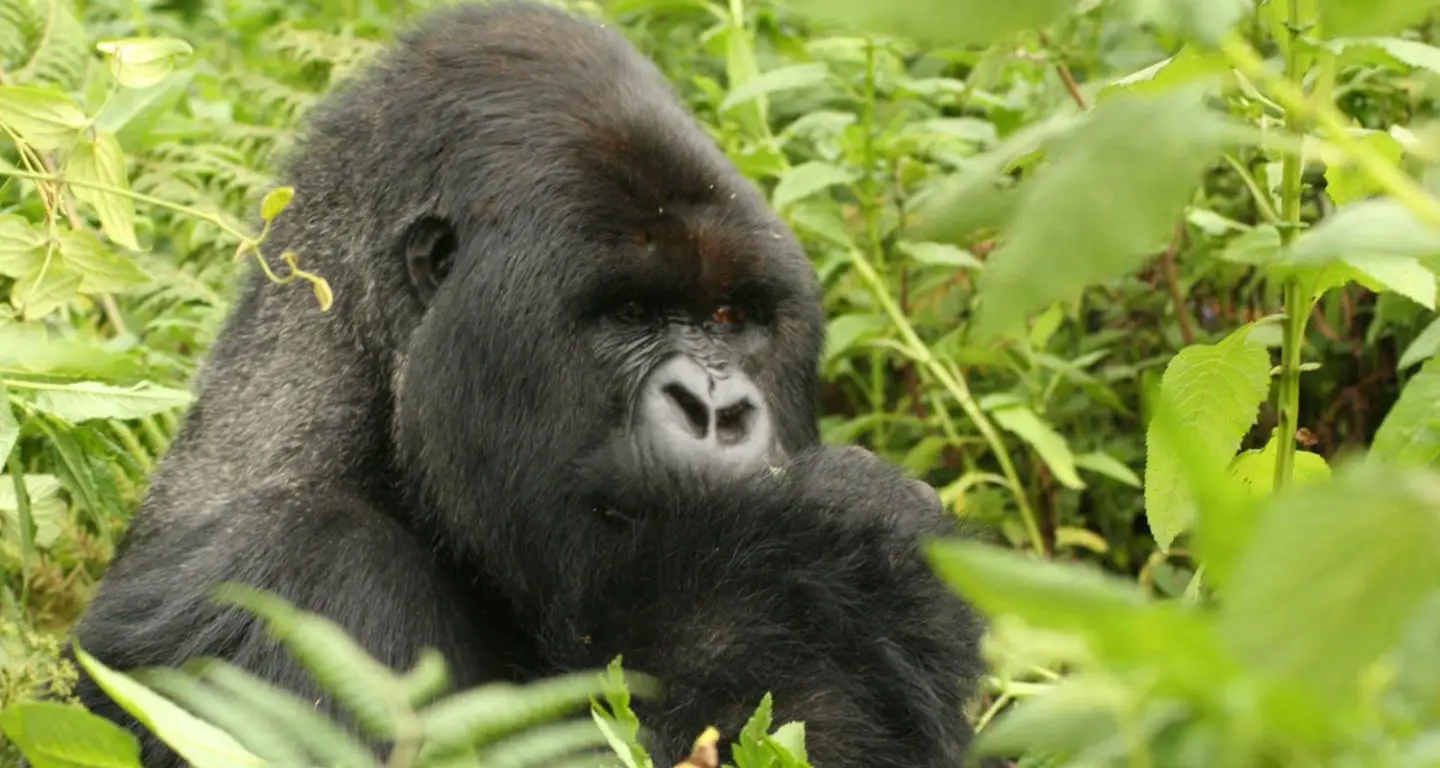
Before you set out on a hunting safari, be sure to ask if the price quoted includes permit fees and local taxes.
Mostly, African hunting safari pricing tends to fall under the following structure:
• All-inclusive hunts excluding trophy fees plus client-dependent extras
• Hunt packages including the trophy fee for a particular list of animals
• Self-tailored hunt packages with a discount on trophy fees
• Itemized hunt prices with all the necessary fees and the daily rates
Classes of Hunted Animals in an African Hunting Safari
Basically, there are several game classifications;
- Plain games
- Predators
- Big game
- Small game
- Big Five
Dangerous big game hunting safaris are common in various Eastern and Southern Africa countries. Some of the species available to hunt include; Cape buffalo, Elephant, Lion, Rhino, Leopard, Crocodile, and Hippo.
There are different hunting methods for each animal.
For instance, Cape buffalo and elephants are usually hunted on foot which mostly involves lots of walking and tracking.
Sometimes there is use of traditional bowhunting weapons.
On the other hand, leopards are hunted with dogs or on bait, while lions are either hunted on bait or tracking method.
Again, the method used highly depends on the hunting outfitter of your choice.
List of Animals that Are Likely to Be on Your Hunting List
- Baboon
- Bat Eared Fox
- Black Wildebeest
- Blesbuck
- White Blesbuck
- Blue Wildebeest
- Duiker Common
- Eland Cape
- Gemsbuck/Oryx
- Honey Badger
- Hyena (Brown)
- Impala
- Klipspringer Kudu
- Nyala
- Red Hartebeest
- Kalahari Springbuck
- Black Springbuck
- Steenbuck
- Warthog
- Waterbuck
- Burchell’s Zebra –
- Hartman’s Zebra
- Ostrich
- Porcupine
- Jackal (Black-Backed)
- Damara Dik-Dik
- Giraffe Caracal
Exotics
- Sable
- Roan
5+ Days South African Hunting Itinerary
Package Includes 5 Hunting Days, 6 Nights ($4000)
- Kudu, Cape x 1
- Bushbuck, Cape x 1
- 1 Warthog
- One Blesbuck or 1 Impala
Related Post
7-Day Safari Itinerary Guide
- Day 1: pickup from PE from morning till noon
- From day 2 to day 6: Day 2 through to day 6 are full hunting days
- Day 7: return to PE
Weapons
• Rifle – this will cost you US$ 30 per rifle per day including ammunition.
Safaris Include
- Daily rates
- Hunting transportation
- Professional hunter
- Transfers to and from the airport
- Your hunting licenses
- Trophy skinning
- Hunting permit fees and VAT tax
- Catered meals and beverages (in moderation)
- Daily laundry service during your trip
- Accommodation boasting all amenities, all included
Not Included
- Other animal fees for game taken over and above animals included in the package
- Taxidermy fees
- Any additional days you may decide to add to your hunting safari (beyond what the package covers)
- More personal trips and tours,
- Additional people(hunters/non-hunters) added to the package,
- Flights and gratuities
- One pre-safari night
- Airport pick up
A Typical Hunting Day
Your day will begin early, at dawn with breakfast after which together with your PH, you’ll board a hunting vehicle and drive to the hunting area.
Most African hunts are done using the ‘spot and stalk’ method whereby a potential game is spotted.
Then you get out of the vehicle and commence on stalking.
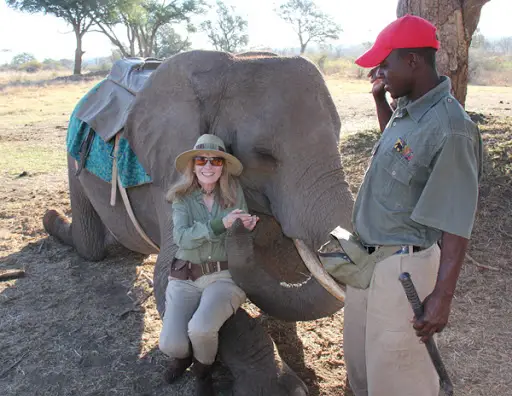
Stalking can take anywhere between a few minutes to a couple of hours and you’ll be guided by your PH on how to approach the potential trophy.
Mostly, it gets hot by noon especially during summer which makes it unbearable to get any spotting under the scorching sun
It is during this period animals go into hiding from the sun.
Around this time you’re likely to be directed back to the hunting lodge for lunch and a short rest.
You’ll later commence on an afternoon hunt which takes about the same form as the morning hunt.
The hunting will go on till dusk where you’ll enjoy a magnificent sunset before calling it a day and getting back to the hunting lodge.
There you’ll enjoy your dinner while reminiscing about the wonderful day’s adventure.
This cycle is repeated for the whole period of your stay.
Conclusion
Information about African hunting safari is scarce and not readily available. We hope this comprehensive African hunting safari guide is everything you need to plan an epic adventure and a memorable hunt in Africa. From the best counties to visit and what to pack for your safari to a sample hunting safari guide.
For more safari-related posts, refer to our other posts on:
Frequently Asked Questions on an African Hunting Safari (FAQ)
Simply put, safari hunting is an adventurous excursion taken by an individual to hunt wild animals for recreation.
An African safari hunt can be an expensive affair but that’s based on a couple of factors; which includes the areas do you want to see? How do you want to get around? (Fly or drive) and of course, the species that you want to hunt down.
Trophy hunting costs can range anywhere between $500 and $ 8,000 but again, the total cost will depend on where and what you’re hunting, plus the available quality of the trophy.
Kenya is one of the African countries that have banned trophy (and any other form of hunting). While other countries like Botswana do allow hunting but taking trophies home may be restricted.
In addition to other personal items that you’d take on a normal safari, some essentials of an African hunting safari include; binoculars and bug repellent especially if you’re visiting around summertime.
